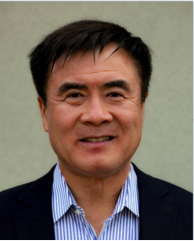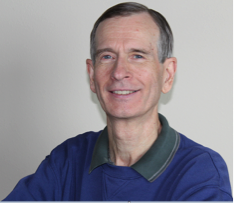Medical wearable device and design
Medical wearable device and design
Topic 1: Accurate Sleep Monitoring (Don Aoki)
Seventy million Americans have a sleep disorder, costing the US $411 billion annually. Untreated obstructive sleep apnea (OSA) can lead to stroke, chronic heart failure, high blood pressure, and other cardiovascular problems, and is a factor in many traffic and workplace accidents.
A definitive tool for determining the presence of sleep apnea is polysomnography, or a sleep study, conducted in a sleep lab or at home. An overnight in-lab study is the most accurate and comprehensive, but it is also the most expensive and inconvenient for the patient, requiring an overnight stay in an unfamiliar bed with multiple uncomfortable electrodes and sensor attachments. A home sleep test (HST) uses a portable medical device with a subset of in-lab sensors to detect breathing patterns and permits the patient to sleep in their own bed (reducing the first night effect). An HST is a fraction of the cost of an in-lab study. In both cases, a sleep study is intrusive, a one-time snapshot of breathing patterns, scored by medical professionals, expensive and time-consuming, taking up to six months from initial visit to primary care physician to receive results.
Somnology’s Plex® Sleep Scanner provides a third approach for sleep disorder assessment, home sleep assessment and monitoring (HSAM). It is a wearable, easy-to-use, and comfortable digital healthcare device with integrated medical grade sensors to collect sleep metrics, instantly delivered to a smartphone and providers.
Topic 2: Wearable device design issues, challenges and solution (Walt Maclay)
Abstract: Smart wearables are emerging as one of the key drivers of the tech economy and hold the promise to add value to virtually every industry - from retail to industrial manufacturing and medical devices. In this talk, Walt Maclay will discuss the range of components that allow these wearables to operate, including the sensors that perform physiological measurements. He will address the many design challenges in implementing these measurements and discuss the design of A/R glasses as an example.
Date and Time
Location
Hosts
Registration
-
 Add Event to Calendar
Add Event to Calendar
- 2800 Scott Blvd
- Santa Clara, California
- United States 95050
- Building: Nvidia Buliding E
- Click here for Map
- Contact Event Host
- Co-sponsored by dev_bhattacharya@ieee.org
Speakers
 Mr. Don Aoki
Mr. Don Aoki
Accurate Sleep Monitoring
Seventy million Americans have a sleep disorder, costing the US $411 billion annually. Untreated obstructive sleep apnea (OSA) can lead to stroke, chronic heart failure, high blood pressure, and other cardiovascular problems, and is a factor in many traffic and workplace accidents.
A definitive tool for determining the presence of sleep apnea is polysomnography, or a sleep study, conducted in a sleep lab or at home. An overnight in-lab study is the most accurate and comprehensive, but it is also the most expensive and inconvenient for the patient, requiring an overnight stay in an unfamiliar bed with multiple uncomfortable electrodes and sensor attachments. A home sleep test (HST) uses a portable medical device with a subset of in-lab sensors to detect breathing patterns and permits the patient to sleep in their own bed (reducing the first night effect). An HST is a fraction of the cost of an in-lab study. In both cases, a sleep study is intrusive, a one-time snapshot of breathing patterns, scored by medical professionals, expensive and time-consuming, taking up to six months from initial visit to primary care physician to receive results.
Somnology’s Plex® Sleep Scanner provides a third approach for sleep disorder assessment, home sleep assessment and monitoring (HSAM). It is a wearable, easy-to-use, and comfortable digital healthcare device with integrated medical grade sensors to collect sleep metrics, instantly delivered to a smartphone and providers.
Biography:
Don Aoki is Head of Products, collaborating with engineering and product management at Somnology, a digital healthcare venture building a “Sleep Lab as a Service” cloud enterprise solution for the assessment, monitoring, and treatment of sleep disorders. Somnology has received patents for its methodology, process, and diagnosis of sleep disorders.
Prior to Somnology, Don was a founding technology executive at Keynote Systems, with assorted roles as VP Engineering, SVP Products, and SVP/GM Professional Services. Don holds a Master’s in Electrical Engineering and Computer Science from the Massachusetts Institute of Technology, and a Bachelor’s in Computer Science from the University of Southern California.
Email:
 Mr. Walt Maclay
Mr. Walt Maclay
Wearable device design issues, challenges and solution
Smart wearables are emerging as one of the key drivers of the tech economy and hold the promise to add value to virtually every industry - from retail to industrial manufacturing and medical devices. In this talk, Walt Maclay will discuss the range of components that allow these wearables to operate, including the sensors that perform physiological measurements. He will address the many design challenges in implementing these measurements and discuss the design of A/R glasses as an example.
Biography:
Walt Maclay, President and founder of Voler Systems, one of the top electronic design firms in Silicon Valley, is committed to delivering quality electronic products that are easy to manufacture. Voler Systems (www.VolerSystems.com) provides design, development, risk assessment, and verification of new devices for medical, consumer, and industrial, and applications. Voler is particularly experienced in designing wearable devices, using its skill with sensors and wireless technology. Walt is a senior life member of the Institute of IEEE. He holds a BSEE degree in Electrical Engineering from Syracuse University.
Email:
Agenda
Don Aoki and Walt Maclay will each present for 30 minutes followed by panel discussion facilitated by Dev Bhattacharya for 20 to 30 minutes

